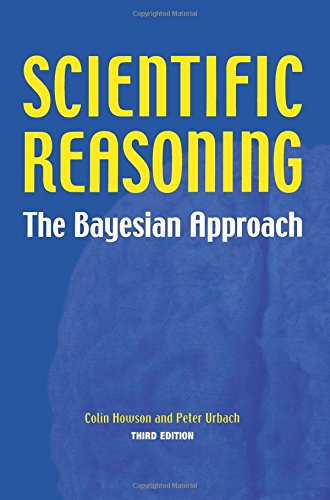Scientific Reasoning: The Bayesian Approach book download
Par tabor abdul le samedi, juillet 23 2016, 04:16 - Lien permanent
Scientific Reasoning: The Bayesian Approach . Colin Howson, Peter Urbach

Scientific.Reasoning.The.Bayesian.Approach..pdf
ISBN: 081269578X,9780812695786 | 340 pages | 9 Mb

Scientific Reasoning: The Bayesian Approach Colin Howson, Peter Urbach
Publisher: Open Court
In honour of the 250th anniversary of this publication, Bradley Efron examined the question of why Bayes' theorem is not more widely used -- and why its use remains controversial among many scientists and statisticians. As he pointed out, the problem lies with The basis of frequentist reasoning is a prediction of the outcome of many repetitions of the same test, providing an estimate of how frequently a particular result will show up. For example, Bayesian approaches will *clearly* allow two incompatible models to be supported by the evidence. Unfortunately, Silver's discussion of alternatives to the Bayesian approach is dismissive, incomplete, and misleading. Application of BNs for case based probabilistic reasoning and scientific evidence assessment. It lasts 6 months with a workload per week of 3 hours on the online (glass, fibres, gunshot residues), drugs and arson. In this philosophy, scientific reasoning is said to depend on making generalizations or inductions from observations to general laws of nature; the observations are said to induce the formulation of a natural law in the mind of the scientist. Second, (I) is rejected by practically all normative approaches to scientific reasoning. Scientific.Reasoning.The.Bayesian.Approach..pdf. Scientific Reasoning: The Bayesian Approach. The course content is based on the use of likelihood ratios, an approach that is supported by the International Society of Forensic Genetics, the European Network of Forensic Science Institutes and the Association of Forensic Science Providers.